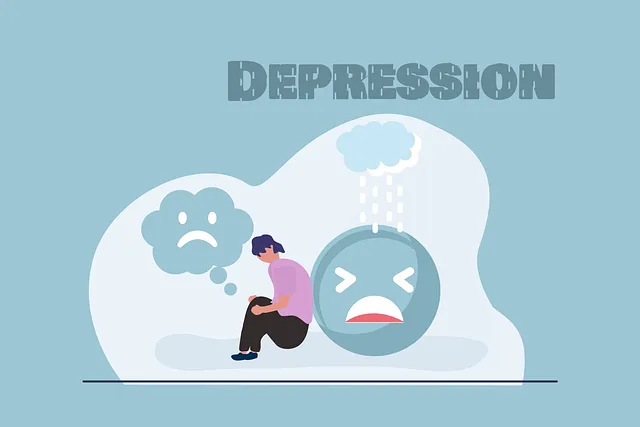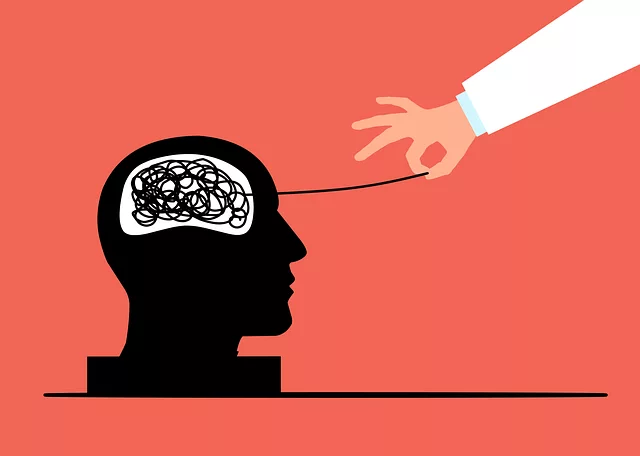Mental wellness apps gain popularity due to increasing awareness of mental health and high healthcare costs. Kaiser Permanente, a leading healthcare provider in Golden, offers comprehensive mental health coverage, integrating various apps for burnout prevention, self-esteem improvement, and social skills training. This trend demonstrates the industry's shift towards acknowledging digital mental health solutions' value. By focusing on user-centric design and evidence-based practices, developers can revolutionize mental wellness care, improving accessibility and outcomes. Marketing strategies should partner with healthcare giants like Kaiser Permanente, offer diverse features, integrate podcasts, and align monetization with app missions and user needs. Regular updates based on feedback ensure competitiveness and continuous support for users' mental wellness journeys.
“In today’s digital landscape, mental wellness apps are gaining prominence as powerful tools for managing and improving mental health. This article explores the development of such apps with a focus on Kaiser Permanente’s innovative mental health coverage policy as a benchmark. We delve into the role of technology in creating effective mental wellness apps, emphasizing user-centric design for optimal support. Additionally, we discuss marketing strategies, monetization models, and continuous improvement techniques for successful app launch and beyond, inspired by Kaiser Permanente’s ‘Golden’ approach to mental healthcare.”
- Understanding Mental Health Coverage: A Look at Kaiser Permanente's Policy
- The Role of Technology: Developing Effective Mental Wellness Apps
- Designing User-Centric Experiences for Improved Mental Health Support
- Launch and Beyond: Marketing, Monetization, and Continuous Improvement Strategies
Understanding Mental Health Coverage: A Look at Kaiser Permanente's Policy

Mental wellness apps have gained significant traction, aligning with growing awareness about mental health. Understanding insurance coverage for such tools is crucial, especially when considering the rising cost of healthcare. Kaiser Permanente, a prominent healthcare provider, offers an insightful example with its mental health coverage policy. The organization recognizes the importance of digital interventions by covering various mental wellness apps as part of its benefits package. This inclusive approach encourages members to access resources that address issues like burnout prevention, self-esteem improvement, and social skills training.
Kaiser Permanente’s policy highlights a broader trend in the industry, where insurance companies are acknowledging the value of mental wellness solutions. By providing coverage for apps, Kaiser Permanente empowers its members to take proactive steps towards better mental health. This move could significantly impact the accessibility and adoption of evidence-based interventions, ultimately contributing to improved overall well-being in communities across the country.
The Role of Technology: Developing Effective Mental Wellness Apps

In today’s digital age, technology plays a pivotal role in enhancing mental wellness and accessibility to care, especially with growing awareness about mental health issues. Apps focused on emotional regulation and mental well-being have become increasingly popular, offering convenient and personalized support to users. These mental wellness apps can provide tools for self-care, meditation, therapy sessions, and even risk management planning for mental health professionals, all readily available at the user’s fingertips.
One notable example of leveraging technology for mental health is seen in organizations like Kaiser Permanente, which offers comprehensive mental health coverage, integrating various digital solutions. This includes features catering to diverse needs, such as cultural sensitivity in mental healthcare practice, ensuring inclusivity and effective care for a wide range of users. With the right balance of functionality and user-centric design, these apps have the potential to significantly impact positive outcomes in mental wellness management.
Designing User-Centric Experiences for Improved Mental Health Support

In the realm of mental wellness app development, designing user-centric experiences is paramount to improving access and effectiveness of support services. Apps should be tailored to meet the unique needs and preferences of users, ensuring they feel empowered and engaged in their mental health journey. Incorporating features like personalized mood management tools, calming meditation sessions, and anonymous community forums can create a safe and non-judgmental space for expression and healing. By prioritizing user experience, developers can foster trust and encourage consistent use, ultimately enhancing the impact of mental wellness apps.
Drawing inspiration from initiatives like Kaiser Permanente’s mental health coverage and Golden’s Mental Illness Stigma Reduction Efforts, app developers can integrate evidence-based practices into their platforms. Incorporating features that promote self-care, such as mood tracking and goal setting, alongside access to mental wellness coaching programs, can equip users with the skills needed to manage their mental health effectively. By combining user-centric design with informed development practices, mental wellness apps have the potential to revolutionize care, making it more accessible, personalized, and supportive for all users.
Launch and Beyond: Marketing, Monetization, and Continuous Improvement Strategies

Upon launching a mental wellness app, the initial focus shifts to marketing strategies that cater to an audience in need of support. Leveraging digital platforms and collaborating with healthcare providers like Kaiser Permanente can extend coverage for mental health services, making your app more accessible. Offering diverse features such as Resilience Building tools and Crisis Intervention Guidance will attract users seeking holistic solutions. Integrating a Mental Wellness Podcast Series Production within the app adds value by providing auditory content that complements visual interfaces.
Monetization models should align with the app’s purpose and user needs. Subscription plans, in-app purchases for premium features, or partnerships with insurance providers like Golden offer sustainable financial strategies. Continuous improvement involves gathering user feedback, analyzing engagement metrics, and regularly updating content. Staying agile and responsive to market trends ensures the app remains competitive while effectively supporting users’ mental wellness journeys.
The development of mental wellness apps, informed by industry leaders like Kaiser Permanente’s policies on mental health coverage, presents a golden opportunity to enhance access to care. By leveraging technology to create user-centric experiences, these applications can significantly support improved mental health outcomes. As the market for mental wellness solutions continues to evolve, successful apps will not only offer effective tools but also implement robust marketing and monetization strategies while prioritizing continuous improvement based on user feedback.






